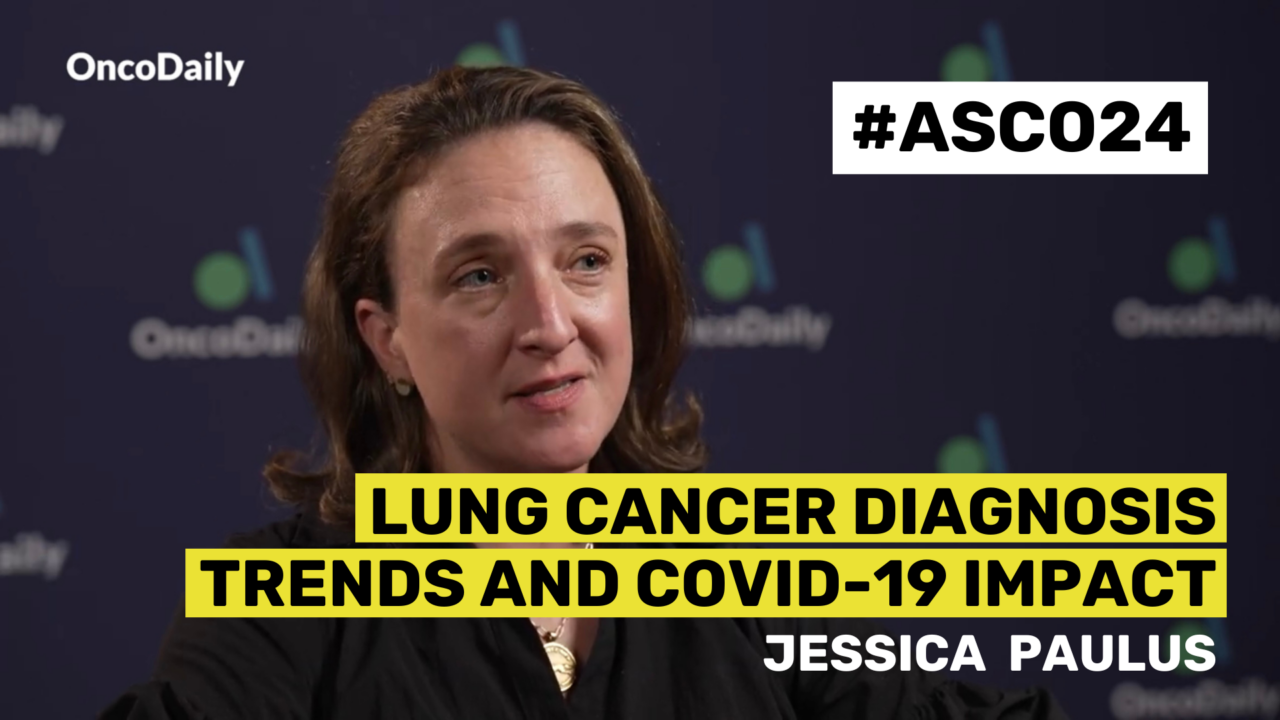The American Society of Clinical Oncology (ASCO) Annual Meeting is one of the largest and most prestigious conferences in the field of oncology. This year, the meeting took place from May 31 to June 4 in Chicago, Illinois. The event gathers oncologists, researchers, and healthcare professionals from around the world to discuss the latest advancements in cancer research, treatment, and patient care. Keynote sessions, research presentations, and panel discussions are typically part of the agenda, providing attendees with valuable insights into emerging trends and innovations in oncology.
This year, OncoDaily was at ASCO 2024 for the first time covering the meeting on-site. We had the pleasure of interviewing researchers who summarized the highlights of their work.
In this video, Jessica Paulus, Director of Real-World Research at Ontada, shares insights from ‘Assessing secular trends in lung cancer stage in the United States community oncology setting from 2013 to 2023.‘
Hi, my name is Jess Paulus. I’m a Senior Director of Real-World Research at ONTADA. I’m here today to be talking about the work that we presented at ASCO this morning.
This was a description of secular trends in the stage of presentation for patients with lung cancer in the community oncology setting in the United States. This was a retrospective study of real-world data that was emanating from the U.S. Oncology Network. The study was enabled by the existence of an oncology-specific electronic health record platform called INOMED that is deployed throughout the U.S. Oncology Network, a network of community oncology practices that has great geographic representation of the United States.
So we were able to study trends in stage at initial presentation to this network for patients with small cell and non-small cell lung from the years 2013 to 2023. We ended up with approximately 100,000 patients with lung cancer, about 85,000 of them had non-small cell lung cancer, and 15,000 had small cell lung cancer. The main takeaway from our research presentation today was that we noticed a shift in stage at presentation towards more advanced stage at diagnosis.
So over this 11-year span approximately, we saw a shift towards a higher proportion of patients presenting with stage 3 and particularly stage 4 disease upon entry or upon care by the community oncology network. We also secondarily noticed a more pronounced shift in stage at presentation or stage at presentation to the U.S. Oncology Network around the years 2020 and 2021 right after 2019, which of course as we all know corresponds to the beginning of the COVID-19 pandemic.
So this trend that we noticed around increased stage at presentation in the years 2020 and 2021 is consistent with what we’ve observed for other primary cancers aside from lung cancer, as well as across other data sources that are capturing stage at diagnosis.
You know, perhaps this is due to delays in screening behaviors, due to differential resource allocation as part of the pandemic, due to patient behaviors during the pandemic, as well as again provider resource allocation during the pandemic. So, you know, this work we think is really important in terms of providing a description of the burden of stage 4, stage 3 disease, advanced stage disease for small cell and non-small cell for community oncology providers.
It can be used to justify really appropriate resource allocation to make sure that the right type of care is available for patients, the right resources, as well as the right kinds of resources for oncology practitioners, advanced care practitioners, as well as oncologists in the community oncology setting.
More videos and content from ASCO 2024 on OncoDaily.


